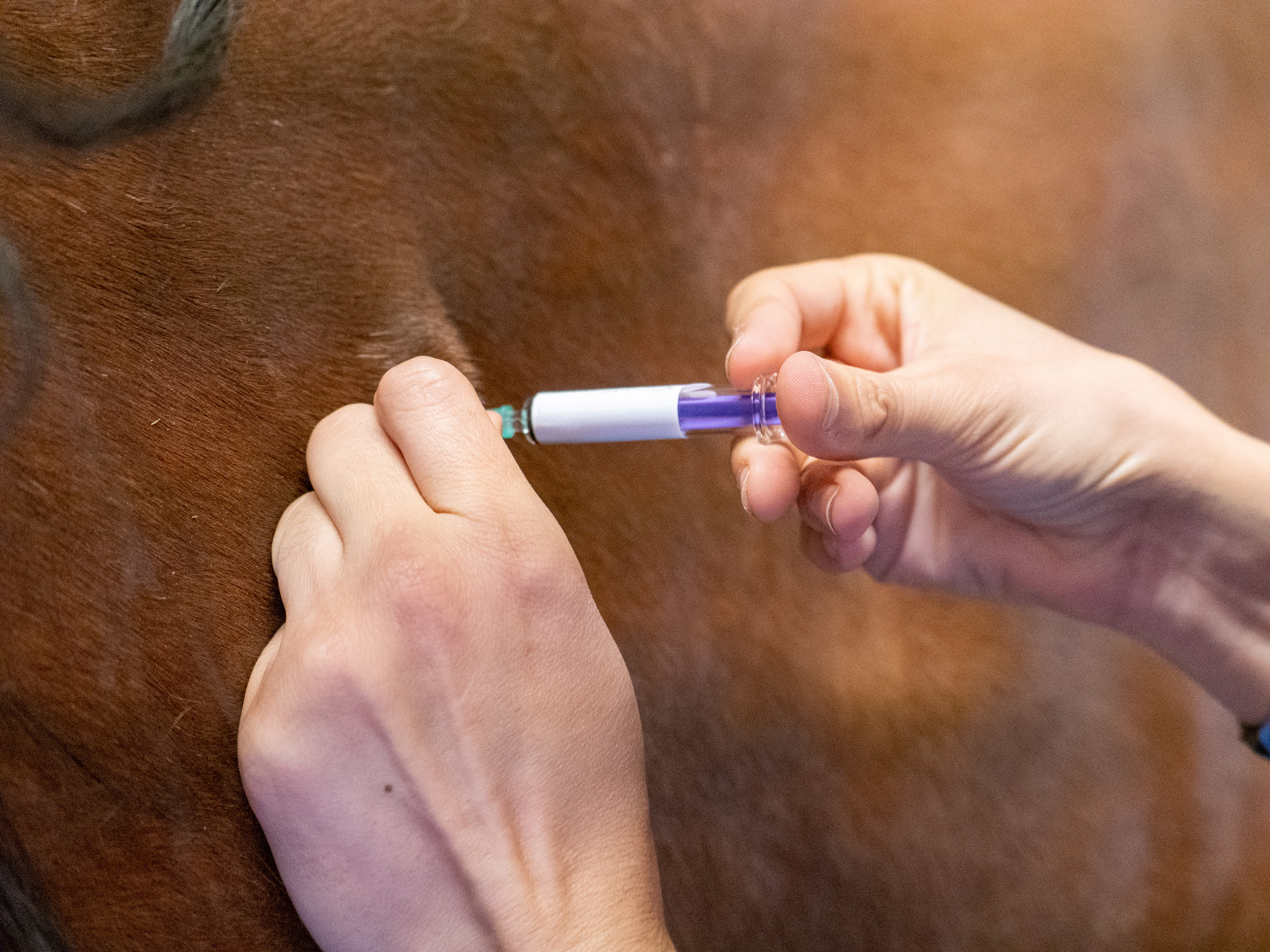
Vaccinations
Why do we need to vaccinate?
A vaccine is an injection that stimulates an immune response against a specific infection.A vaccination programme will ensure that your horse has maximum protection against the infections in the UK which can cause serious (and sometimes fatal) diseases.
Horses can be vaccinated from six months of age. The primary vaccination course consists of two vaccinations around one month apart, followed by a third one after another 5-6 months. We carry out a brief health check before the first vaccination to make sure they are fit and healthy.
Does your horse compete?
Many of the UK and international governing bodies have slightly different rules and regulations so, if in doubt, please check your requirement with both your competition governing body and competition venue.
If you are still unsure, call the office and we can arrange for a vet to check your horse’s passport.
Tetanus
Tetanus is a disease caused by the bacterium Clostridium Tetani, which lives in the soil.The bacteria can enter the body through the smallest of wounds, including foot abscesses and the navel of newborn foals. Once in the body it produces a toxin that attacks the nervous system and, untreated, will lead to death. Even with prompt veterinary attention, 90% of horses that become infected with tetanus will die. The disease can be easily prevented by vaccinaton so please call the practice to discuss if your horse, pony or donkey is not covered.
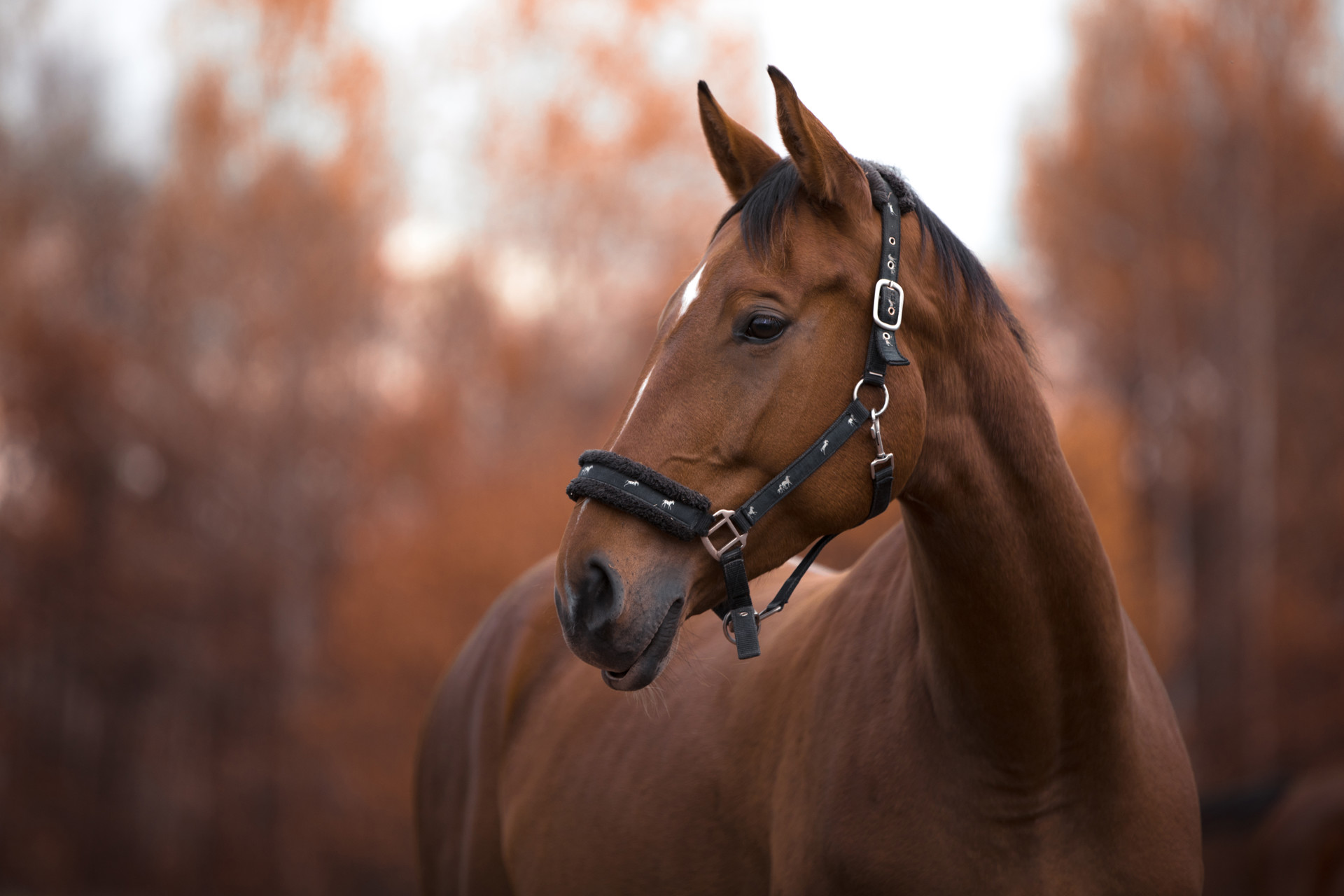
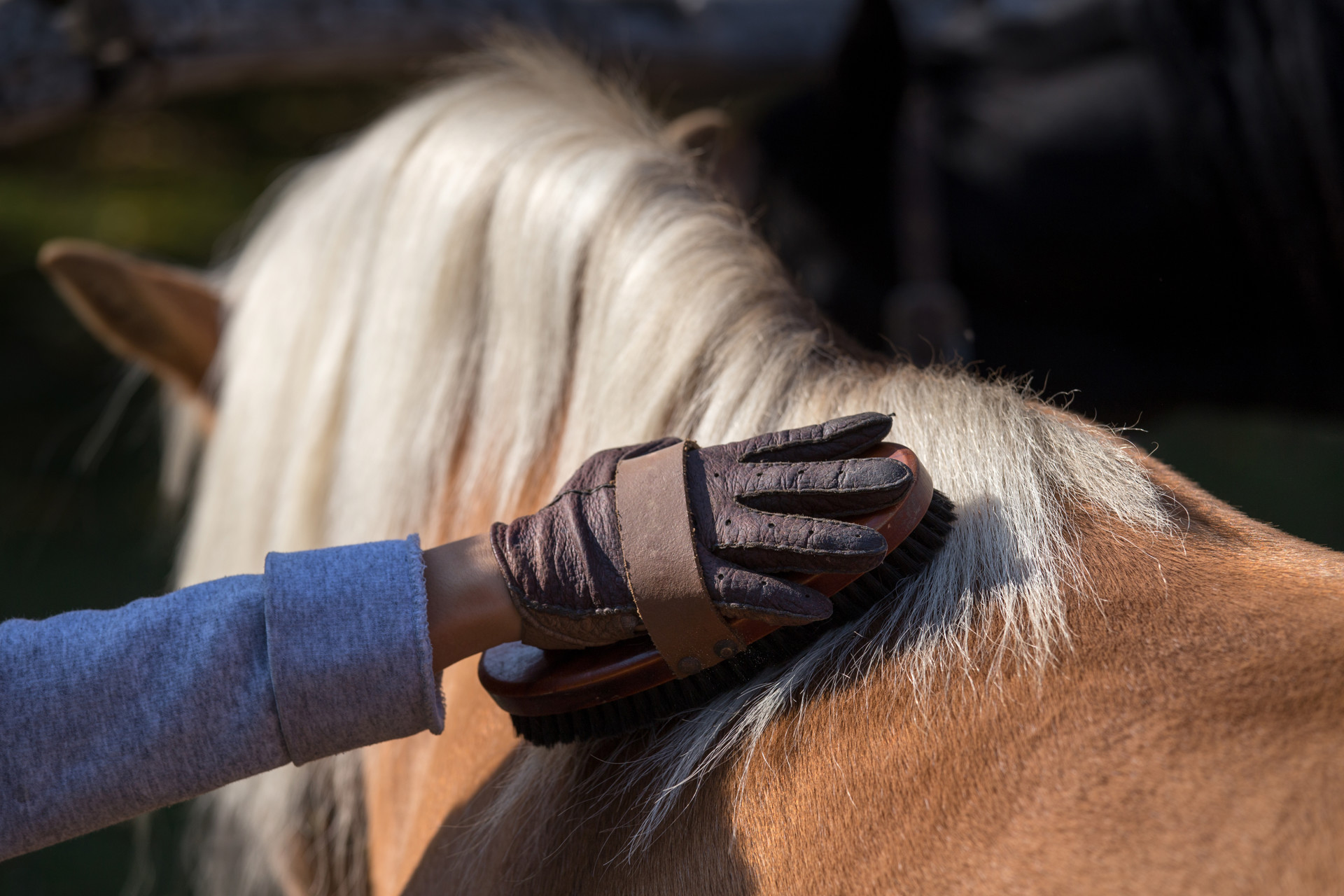
Influenza
Equine Influenza is a highly contagious viral disease that is spread between horses via direct contact, via handlers or by airborne transmission.Affected horses develop a high temperature, coughing and nasal discharge which may progress to pneumonia and can cause permanent lung damage. Vaccination can prevent the disease or lessen the severity of clinical signs. Even if your horse is not mixing with others, it can still be susceptible to the disease.
EHV
Equine herpes viruses are a group of viruses which can cause contagious disease in horses.The two most significant types are: Equine Herpes Virus 1 (EHV-1) and Equine Herpes Virus 4 (EHV-4) and they are often collectively referred to as Equine Herpes Virus (EHV). It is reported that 80-90% of horses are infected with EHV before the age of 2 years old. The Equine Infectious Disease Advisory Group (EIDAG) recommends that the following groups of horses are vaccinated with a primary course and then re-vaccinated against EHV-1 at six month intervals.
- Horses less than five years of age (but over six months).
- Horses that may come into contact with pregnant mares.
- Horses housed at facilities with frequent movement of horses on and off the premises.
- Horses which frequently attend gatherings where horses mingle in close proximity.
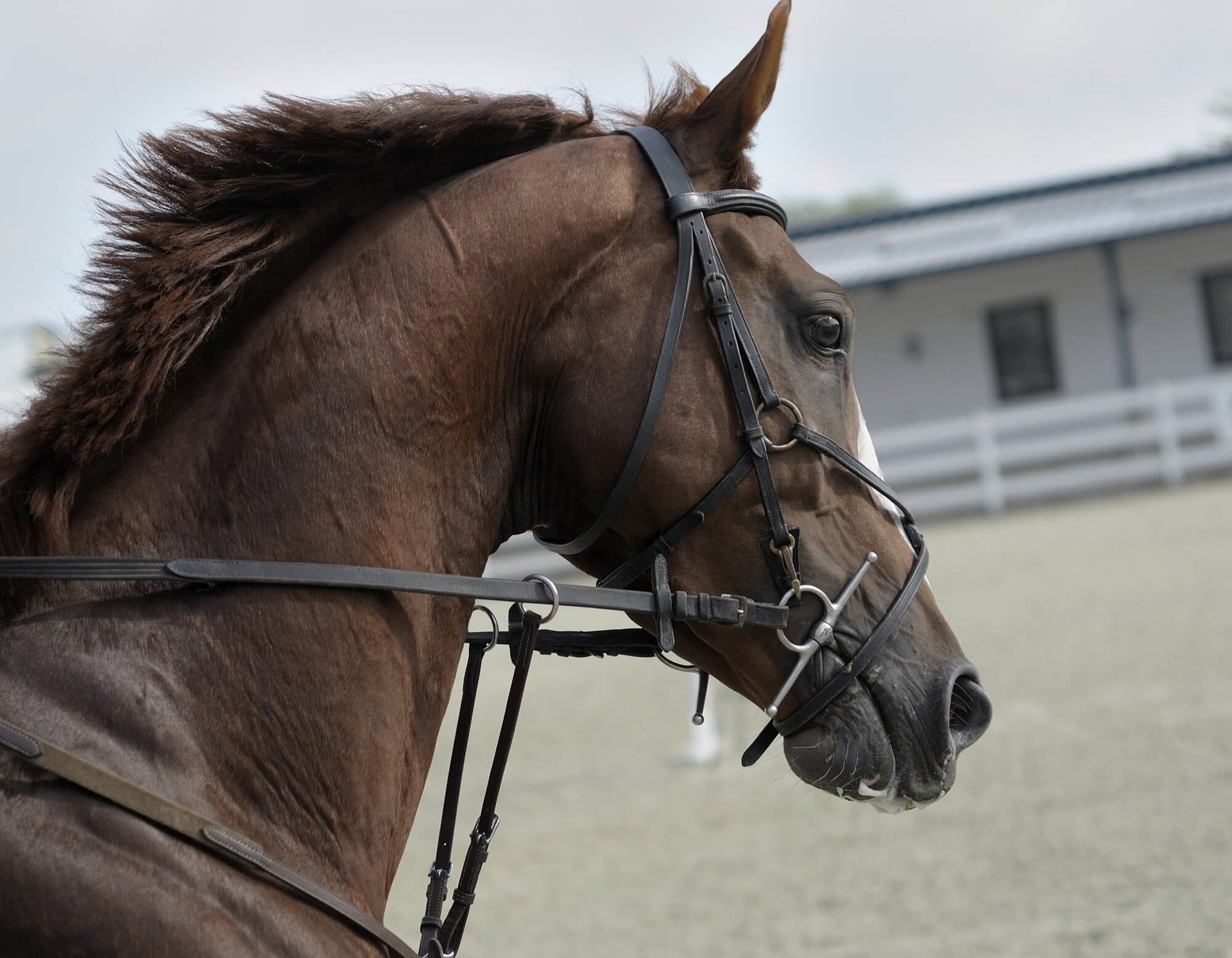
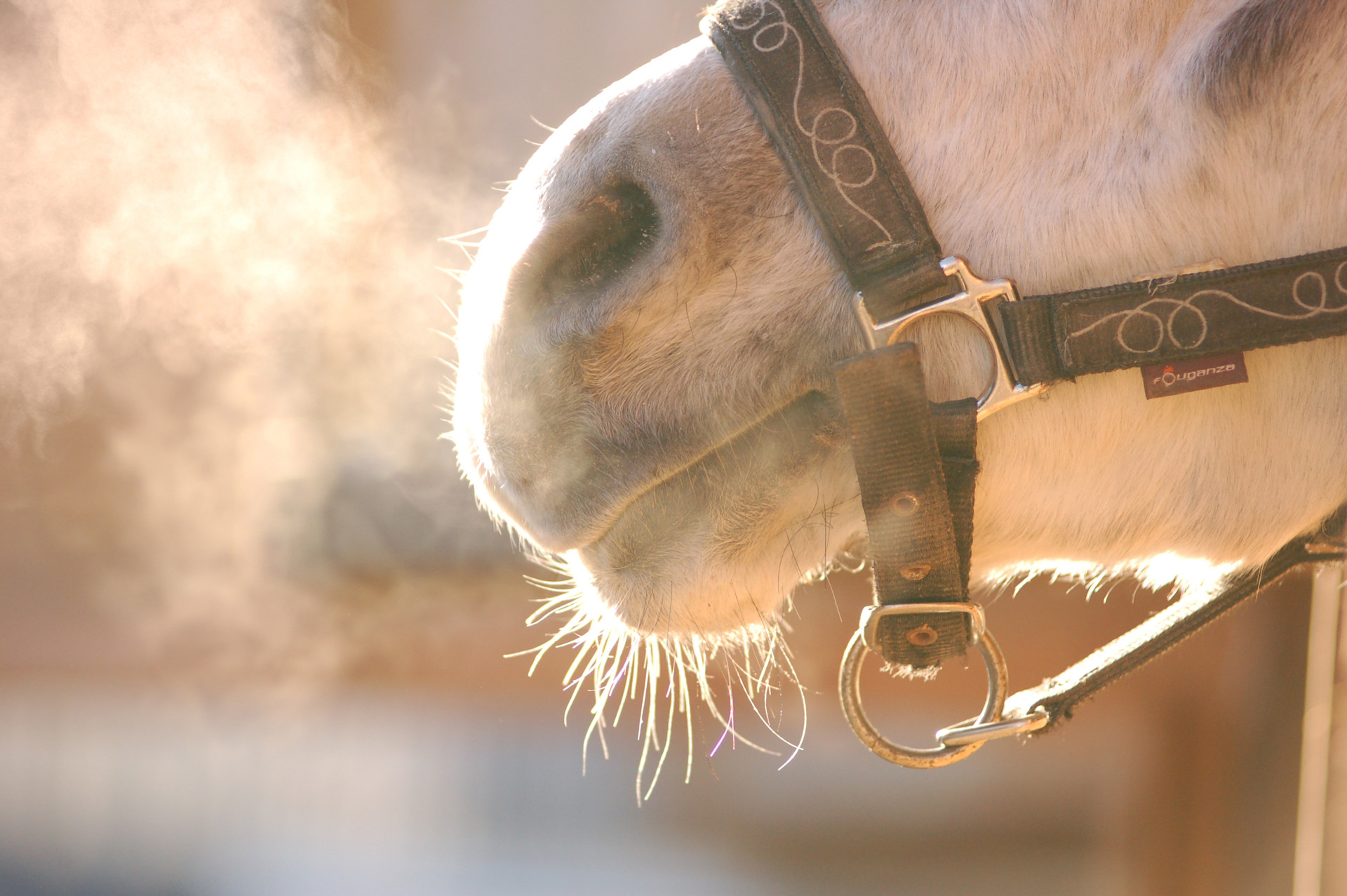
Strangles
A vaccine can be given to horses from 8 months of age to reduce clinical signs of the acute stage of strangles.Strangles is a very common but unpleasant bacterial disease that can affect horses, ponies and even donkeys. Signs vary between individuals and can range from very mild to dramatic in appearance.
The disease is caused by bacteria called Streptococcus equi subspecies equi (Strep. equi) and is highly contagious being spread by direct contact with infected discharges or with contaminated clothing or equipment.
Horses can be silent carriers of the bacteria displaying no outward signs but being capable of infecting others. Vaccinating does not stop horses contracting the infection and cannot replace the need for biosecurity and isolation measures for new horses.